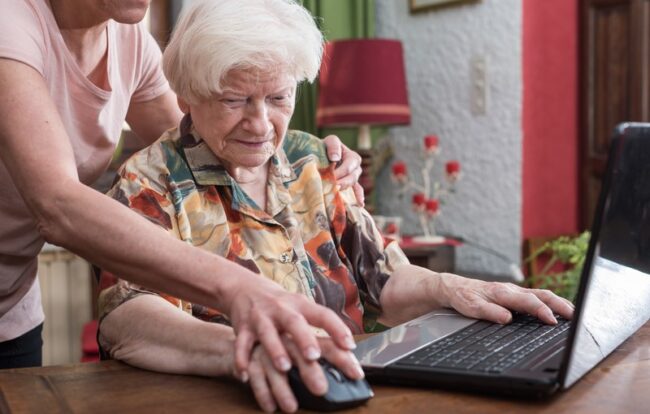Digital health technology has the potential to revolutionise geriatric care. The digital divide has decreased among older adults, and over a third of
Digital health technology has the potential to revolutionise geriatric care. The digital divide has decreased among older adults, and over a third of adults aged 50 years and older in the USA already use technology for health or independence, reported The Lancet.

Device types are broad (eg, wearable and non-wearable sensors, tablets, telephones, computers, cameras, robots, and voice-activated technology) and have the potential to improve two key health-care domains:
- Monitoring (eg, activity, sleep, glucose, blood pressure, heart rate, falls, frailty, cognitive function, and medication or treatment adherence)
- Service delivery (eg, remote provider visits, education, reminders, and health information sharing)
These technologies could enhance quality of life, improve health care access, enable earlier detection of health issues, and foster patient and caregiver engagement, reported The Lancet.

Although these technologies have the potential to improve care for older adults, important ethical considerations must be addressed to reduce to the digital divide and health disparities.
In this Comment, we outline three crucial ethical considerations for digital health technology in older adult care:
- Equity, privacy, and data responsibility

We also provide suggestions for future research and actions to address each ethical consideration before health technology should be broadly deployed in clinical contexts, reported The Lancet.
Technology equity requires equalising access to all elements required for technology use across people with varying technology literacy. These elements include high-quality internet; technology set-up and support; open-source data and algorithms; and program usability, adoption, and adaptability.
Inequities are present in all of these domains. For example, older adults with lower income continue to have lower access to smartphones, tablets, computers, and home broadband, reported The Lancet.

Researchers can integrate equity frameworks into health technology studies, and ensure that participant demographics, as well as digital literacy, are reported to help identify equity gaps.
Researchers must include members of key groups (eg, patients, caregivers, and clinicians) in the development of digital health technology for older adults, and must apply user-centred design strategies to ensure data are clinically useful and meaningful, especially for those most likely to struggle with technology, reported The Lancet.

For instance, a 2021 report showed 39–45% of adults aged 50 years and older in the USA feel that technology today is not being designed with people of all ages in mind.
Pre-emptive, transparent, and universal data privacy and security policies for all health technology, that encompass data collection, storage, transfer, raw data ownership, and sharing, are needed, reported The Lancet.
At a minimum, all digital health technology (in the USA) that collects health data should meet Health Insurance Portability and Accountability Act standards for both research and non-research (eg, for-profit) applications.
For effective integration of digital health technology, health-care systems would need:
- Protocols for responding to monitoring alarms
- Technology support systems for data extraction and protection
Software upgrades - User training
- Dashboards for integrating new data into electronic medical records
- Mechanisms for reviewing
- Billing for data outside of health-care visits

Implementation science studies can help determine how, when, and where data should fit into clinical workflows, reported The Lancet.
Specifically, development of and research on robust data dashboards can help ensure efficiency and clinical utility. Additionally, it is necessary to evaluate the clinical value of data monitoring and subsequent responses to abnormal data before implementing technology into clinical practice.
The Lancet reported that more economic studies outlining technology costs and benefits to the health-care system in the USA are needed.
All Credit to: The Lancet



COMMENTS